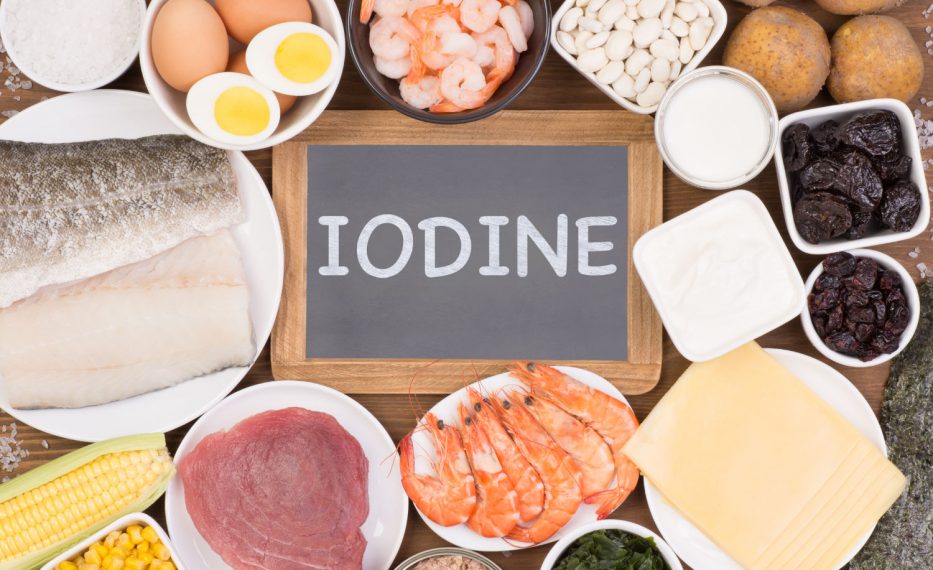Iodine and CMPA

A recent study in Norway looking at iodine status of children under 2 years of age with CMPA found that 30% had iodine deficiency. They also found that in the breastfed group, there was a higher prevalence of iodine deficiency than in the group who were fed hypoallergenic formula. Breastfed infants are highly dependent on the content of iodine in breast milk, which in turn is dependent on the breastfeeding mother’s iodine status.
Why is Iodine important?
Iodine is an essential micronutrient but not one you often hear about. It is only needed in tiny quantities (50 – 130 micrograms per day, depending on the age of the child and 200 micrograms per day for pregnant and breastfeeding mums), but it has an essential role to play in helping our bodies to make thyroid hormones.
Iodine is also essential in pregnant women to support baby’s brain and neurological development. Recent research has shown that there has been a re-emergence of iodine deficiency in the UK and this is particularly important in pregnant women, where a deficiency of iodine could influence the neurodevelopment of their children.
Food sources of iodine
The best sources of iodine are found in dairy products, eggs and in sea fish (particularly white fish) and shellfish. For this reason, dairy-free diets can be low in iodine and vegan diets can be very low in iodine. Check with your healthcare professional, as some children and breastfeeding mums may need to take an iodine supplement, but be careful, as very high intakes of iodine can be harmful.
The BDA has a very helpful factsheet on Iodine.
Dairy free milk alternatives that contain iodine:
- Oatly oat m.lks
- The Mighty Society pea m.lks
- Qwrkee pea m.lks
- Alpro soya growing up drink 1-3 years
- Koko ‘super’ coconut m.lk
- All M&S plant-based drinks
- ASDA free from oat drink




